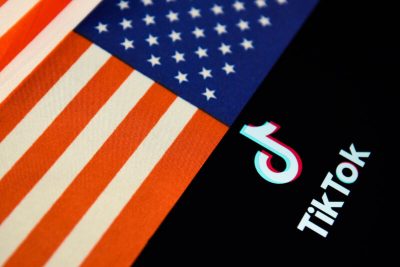China, Trump’s Public Enemy Number One: US Judge Halts TikTok Ban

Both right wings of the US one-party state consider China public enemy No. One for its growing prominence on the world stage.
Notably from Obama’s 2013 Asia pivot that’s all about asserting Washington’s Indo/Pacific military footprint to Trump’s war on China by other means, US policy aims to undermine Beijing’s political, economic, industrial, and technological growth.
Prominent Chinese enterprises are in the eye of the made-in-the-USA storm, notably tech giant Huawei.
It’s the world’s largest telecommunications equipment manufacturer and leader in the race to roll out next-generation 5G technology, its market potential worth trillions of dollars.
In August, Trump banned China’s video-sharing TikTok as well as mobile text and voice messaging communication firm WeChat from operating in the US under their present ownership — on the phony pretext of national security concerns.
The dubious claim is used time and again to justify hostile US actions against targeted nations — notably China, Russia and Iran.
In banning both Chinese enterprises, Trump claimed dubious authority under the US National Emergencies Act and International Emergency Economic Powers Act at a time when no emergency exists relating to China, its private enterprises, or any other nations.
He falsely claimed that data TikTok and WeChat have access to from US users “potentially allow(s) China to track the locations of federal employees and contractors (sic), build dossiers of personal information for blackmail (sic), and conduct corporate espionage (sic).”
No evidence was cited to corroborate the above accusations because none exists.
Claiming “risks are real” to national security from these firms and other Chinese enterprises are baseless.
Actions taken against Chinese firms aim to weaken the country and give corporate America a competitive advantage over its key enterprises.
Late Sunday evening, a US federal judge ruled against letting Trump’s Commerce Department ban new TikTok downloads from Apple and Alphabet Google app stores from taking effect.
Following an emergency Sunday hearing, District Judge Carl Nichols granted TikTok’s request for a temporary restraining order against Trump’s ordered ban.
In response, a company statement said the following:
“We’re pleased that the court agreed with our legal arguments and issued an injunction preventing the implementation of the TikTok app ban.”
“We will continue defending our rights for the benefit of our community and employees.”
According to a Commerce Department statement, the Trump regime “will comply with the injunction and has taken immediate steps to do so, but intends to vigorously defend the executive order and the secretary’s implementation efforts from legal challenge.”
Commenting on the ruling, China’s Xinhua said “Washington’s heavy-handed cracking down on TikTok has laid bare the recklessness and hypocrisy of America’s blatant modern-day piracy against outperforming foreign enterprises,” adding:
Even the CIA “concluded that there is no evidence showing China has intercepted TikTok’s data, or used the app to intrude on users’ mobile phones.”
Bipartisan US hardliners long ago discarded the rule of law in pursuit of their hegemonic aims — no holds barred.
In unscrupulously targeting its prominent enterprises, China considers US actions “state-sponsored piracy,” a policy it believes will lead Washington “to a dead end.”
Last week, ACLU National Security Project director Hina Shamsi said the following:
“It is very hard to separate out these particular actions against TikTok and WeChat from the fact that they are taking place in the context of Trump’s trade war with China, as well as (his) history of anti-Chinese rhetoric and xenophobia.”
Claiming US actions against these and other Chinese firms are over national security concerns are at “the very least overstated,” she added.
Trump regime actions were backed by no corroborating evidence. Without it, claims are baseless.
On September 19, a San Francisco district judge ruled in favor of WeChat users who argued that no government evidence suggests that the platform poses a national security threat.
Regardless of how Sino/US differences over TikTok and WeChat are resolved, technology analyst Liu Dingding believes hostile Trump regime actions set a dangerous precedent that may affect other nations, adding:
If US actions against these enterprises hold, “it would mean that world-class companies that have core competitiveness would be like ‘lambs’ that can be wantonly slaughtered by the US government when they enter the US market.”
According to China Information Security Research Institute vice president Zuo Xiadong:
“The Trump (regime) is so crazy that it considers any Chinese firm that collects user data in normal business operations as a (national security) threat.”
By this “logic, China should have banned a number of US high-tech companies as China heavily purchased from the US for its information industry development over the past years.”
Zuo stressed that Beijing won’t “bend over” to hostile US actions
TikTok’s preliminary deal with Oracle and Walmart is in limbo.
Beijing may block it to prevent its source code technology from falling into US hands even TikTok’s video-sharing is banned in the US by Trump.
US access to its source code could adversely affect other Chinese enterprises.
Beijing most likely will protect its firms and technologies from what it considers US “piracy.”
*
Note to readers: please click the share buttons below. Forward this article to your email lists. Crosspost on your blog site, internet forums. etc.
Award-winning author Stephen Lendman lives in Chicago. He can be reached at [email protected]. He is a Research Associate of the Centre for Research on Globalization (CRG)
His new book as editor and contributor is titled “Flashpoint in Ukraine: US Drive for Hegemony Risks WW III.”
http://www.claritypress.com/LendmanIII.html
Visit his blog site at sjlendman.blogspot.com.

